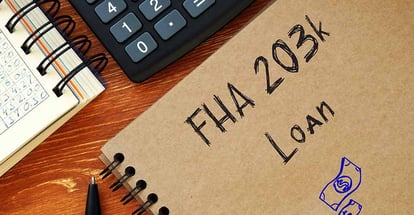Florida FHA Reverse Mortgage Program FAQ
What is a Florida FHA reverse mortgage?
A Florida FHA Reverse Mortgage represents a loan product for homeowners aged 62 and above, enabling them to convert a portion of their home's equity into cash, while still maintaining ownership. This form of mortgage stands distinct thanks to its borrower-friendly terms and conditions.
To delve into the specifics, it is backed by the Federal Housing Administration (FHA), and operates on the principle of 'reverse payment' - rather than making monthly mortgage payments to a lender, the lender makes payments to you, based on your home's equity. It serves as a financial tool for retirement planning, allowing applicants to leverage their property's value.
Understanding the concept of reverse mortgages
The concept of a reverse mortgage can seem complex, but once comprehended, it can offer profound financial benefits.
Here's a glance into its basic principles and working mechanism.
-
Reverse mortgages are for homeowners aged 62 and over.
-
It taps into a home's equity without requiring monthly mortgage payments.
-
The loan amount depends on the borrower's age, appraised home value, and current interest rates.
-
The lender pays the homeowner in lump sum, periodic payments, or line of credit based on the equity.
- The loan is repayable when the borrower sells the home, moves out, or passes away.
How FHA reverse mortgages differ from traditional mortgages
FHA reverse mortgages stand in stark contrast to traditional mortgages, differing primarily in the manner they draw and repay equity from your property.
-
Unlike traditional mortgages which require monthly payments, FHA reverse mortgages convert a part of your home equity into tax-free funds, requiring payment only after you leave the home.
-
FHA reverse mortgages are government-insured, while traditional mortgages can be government-insured or privately insured.
-
In a traditional mortgage, failing to make monthly payments can lead to foreclosure. In contrast, an FHA reverse mortgage doesn't put your home at risk for foreclosure due to late or missed payments as there are none.
- With traditional mortgages, low income or poor credit history may impede approval, while these factors play a less significant role in FHA reverse mortgage qualification.
The eligibility requirements for a Florida FHA reverse mortgage
Spanning an array of crucial prerequisites, Florida FHA reverse mortgage eligibility hinges primarily on factors relating to property value, borrower's age, and occupancy status.
-
Age restriction - Borrowers must be at least 62 years of age or older.
-
Homeownership Status - The property must be your primary residence and fully or significantly paid off.
-
Property Type - The home must qualify as FHA-approved, typically single-family homes or HUD-approved condos.
-
Financial Solvency - You must demonstrate the capability to cover necessary home expenses, such as insurance and taxes.
- Mandatory Counseling - Participation in a consumer counseling program on reverse mortgages is required.

How does a Florida FHA reverse mortgage work?
A Florida FHA reverse mortgage operates by allowing homeowners aged 62 or older to convert a portion of their home equity into cash, setting up a payment stream towards them instead of regular mortgage payments.
A Florida FHA reverse mortgage offers a financial solution for retirees, converting home equity into income while maintaining homeownership.
Here, the property remains under the owner's name, but with the caveat, the loan becomes due when the borrower moves, sells their home, or passes away. It's an attractive option for retirees looking to supplement their income.
The mechanics of a Florida FHA reverse mortgage
Florida FHA reverse mortgages operate on a unique system. Ultimately, they transform part of your home equity into loan payments made to you, flipping traditional mortgage schemas upside down.
Intricacies encompass more than meets the eye. This specific type of mortgage leans on the home's current value rather than the future worth, making it a reliable choice for many homeowners.
One of the striking features is the fact that your mortgage income is tax-free. This allows older Florida inhabitants to boost their financial status sans escalating their tax liability.
Further, it doesn't mandate monthly payments. Instead, the loan is repaid after the homeowner moves out or passes away, positioning this option as a financial lifesaver for those facing economic hardships.
Lastly, the payout depends on factors such as your home's value, your age, and current interest rates. Thus, a seasoned mortgage lender can help navigate the financial labyrinth this option presents.
Exploring the financial benefits of a reverse mortgage
A Florida FHA reverse mortgage boasts a myriad of financial advantages, presenting a practical way for homeowners to tap into their home equity while maintaining ownership.
-
Liberation of funds for immediate expenses, such as healthcare or home improvements.
-
Financial security through additional income source in retirement.
-
Protection from future market downturns as repayment does not depend on the home's future value.
-
Tax-free proceeds as the money received is not considered income.
- Flexibility in receiving funds - lump sum, monthly installments, or line of credit.
Considering the potential risks and drawbacks of a reverse mortgage
Being diligent in understanding the potential drawbacks of Florida FHA reverse mortgages is crucial. Unlike traditional loans, the interest accumulated isn't paid off monthly; it grows over time. Thus, the borrower may face an increase in the total borrowed amount.
In scenarios where the loan exceeds the property value, homeowners or their heirs have a daunting task. Though it's FHA insured, any shortfall is a homeowner's burden, making reverse mortgages less desirable for those wishing to leave an unencumbered property.
An alarming risk for potential homeowners is the expensive upfront costs. FHA reverse mortgages come along with origination fees and insurance premiums, which can sometimes outweigh the benefits, especially if the homeowner plans to move in a few years.
While FHA reverse mortgages are known for their flexibility, they also impose obligations on the borrowers. Homeowners must adhere to strict guidelines, like paying property taxes and insurance, and maintaining the home. Non-compliance could result in foreclosure.
However, it’s not all doom and gloom. Homeowners should seek professional financial advice before embarking on an FHA reverse mortgage journey. This way, they can better understand these risks and make a calculated decision beneficial to their specific circumstances.
How to apply for a Florida FHA reverse mortgage
Start applying for a Florida FHA reverse mortgage by gathering necessary documents like your home deeds, proof of age, and income evidence. Choose an FHA-approved lender, submit your application, and await approval.
Our comprehensive guide provides homeowners with detailed steps to secure a Florida FHA reverse mortgage, from preparing required paperwork to maneuvering through the application process with an FHA-authorized lender.
Gathering the required documentation
Before embarking on your Florida FHA reverse mortgage journey, knowing what paperwork to prepare is paramount. Crucial documents like your proof of income, tax returns, and a complete list of your assets and debt accounts form the foundation of your application.
Completing your reverse mortgage application due diligence requires a checklist of essential paperwork. It should encompass your credit statement, property-related documentation, and an appraisal report, all playing a pivotal role in getting your reverse mortgage process through smoothly.
Working with a reverse mortgage lender
Selecting an FHA-approved reverse mortgage lender in Florida is the first step towards achieving your financial goals. This essential collaborator guides you through the increasingly complex landscape of reverse mortgages, offering a comprehensive walk-through all along the process.
Consequently, finding an experienced and credible lender becomes a priority for many prospective homeowners in Florida.
Reverse mortgage lenders in Florida play substantial roles, including explaining the terms and conditions of the mortgage, conducting financial assessments, and determining the amount you qualify for.
They ensure you comprehend the implications, thereby promoting informed decision-making and making the ownership journey smoother for (future) homeowners.
Moreover, your reverse mortgage lender's proficiency is your shield against potential pitfalls. They are responsible for presenting all feasible options, helping you weigh the benefits and drawbacks, and ultimately enabling you to make the most out of your Florida FHA reverse mortgage.
Understanding the application process and timeline
Initiating an application for a Florida FHA reverse mortgage involves navigating an intricate array of tasks. It entails multiple evaluations, including property appraisal and financial assessments, spanning several weeks to a few months.
An extensive rundown of the procedures includes preparing necessary documentation, working with an approved lender, and undergoing mandatory counseling sessions to fully understand the implications and requirements. Patience and due diligence are key to smooth processing of your application.
Frequently asked questions about Florida FHA reverse mortgages
Tackling the most common queries, Florida FHA reverse mortgages unravel complexities for prospective buyers. This article aims at addressing these essential must-know details.
In a constant endeavor to demystify Florida FHA reverse mortgages, we robustly address the frequently posed questions, providing efficient solutions for potential homebuyers and investors.
Can I still own my home with a reverse mortgage?
Addressing homeownership concerns, relation to Florida FHA reverse mortgages is crucial. Rest assured, even with a reverse mortgage, you retain ownership. The title deed remains in your name, and you can continue to live in your home.
Decoding the fine print of FHA reverse mortgages further assures that you maintain ownership of your home. However, ensure timely payment of property tax, insurance, and maintenance expenses to avoid default causes like the foreclosure.
What happens if I move or sell my home?
If you sell your home or relocate while under a Florida FHA reverse mortgage, the loan becomes due. Essentially, the proceeds from the sale will first go to repay the reverse mortgage, and any remaining balance belongs to you or your heirs.
Moving scenarios vary. For instance, if you're shifting to a new primary residence, the reverse mortgage must be paid off. Keep in mind, the loan repayment merges with the moving process, making the transition manageable.
Selling your home prompts loan repayment too. The sale attracts enough to cover the loan balance. It's essential to know that the debt cannot surpass your home's value, assuring that the sale covers the entire mortgage amount.
If however, your move is temporary – perhaps for health reasons – your reverse mortgage remains intact for up to 12 months. Afterward, if you're unable to return, the loan would have to be repaid, typically from the home's sale.
Can I use a reverse mortgage to pay off my existing mortgage?
Indeed, using a reverse mortgage to pay off an existing mortgage is not only possible but also a frequent use of this type of loan. As a Florida resident, FHA reverse mortgages could provide a viable solution to alleviate your substantial mortgage debt.
After obtaining a reverse mortgage, the funds received are first utilized to settle any existing mortgage on the property. Consequently, this results in the financial relief from monthly mortgage payments, often a substantial burden for many homeowners.
This method allows homeowners to transform their home equity into usable cash, effectively clearing out their mortgage debt. It's a strategic move that could significantly improve the financial wellbeing of Floridian homeowners.
However, it's vital to note that the amount you receive from the FHA reverse mortgage must be sufficient to completely cover your existing mortgage. This feasibility largely depends on your home's appraised value and your age.
Finally, inherent in this process is the freedom to use the remaining proceeds after paying off your existing mortgage as you choose. Whether it's for home improvements, healthcare costs, or simply enjoying a more comfortable retirement in sunny Florida, the choice is yours.
Are there any income or credit requirements for a reverse mortgage?
Indeed, income and credit history significantly impact your eligibility for a Florida FHA reverse mortgage. A steady income and robust credit profile help ensure you manage ongoing property charges like insurance, taxes and maintenance.
The FHA does not require a minimum income but rather evaluates your ability to meet your financial obligations, a key facet in reverse mortgage eligibility. Thus, income certainly plays a role while its absence doesn't necessarily discount applicants.
Furthermore, your credit history is fundamental in establishing if you can meet these obligations. A good record hints at your ability to expertly manage finances, enhancing your chances of qualifying for the reverse mortgage.
While bad credit doesn't necessarily disqualify you, lenders will assess your 'willingness to meet obligations', the so-called 'Residual Income analysis', considering your expenses against income. On this scenario, the importance of a good credit reputation cannot be overstated.
An ideal candidate for a Florida FHA reverse mortgage, thus, should have a steady income and a positive credit history. Still, specific conditions could allow eligibility even when these requirements aren't fully met.
What are the repayment options for a Florida FHA reverse mortgage?
The repayment options for a Florida FHA reverse mortgage offer flexibility and choice to borrowers. Often, repayment doesn't begin until the home is sold, the borrower moves out, or passes away.
With an FHA reverse mortgage in Florida, you can choose to repay in one lump sum or through monthly installments. An option that fits your financial situation can be selected.
Another repayment option to consider is a line of credit. This allows the borrower to draw funds as needed, repay, and then redraw again later. It offers a flexible solution for unpredictable costs.
Interest usually compiles overtime on the outstanding balance, so the full amount can increase if the loan is not repaid promptly. Therefore, planning for repayment is a crucial aspect of the reverse mortgage process.
Ultimately, the repayment option you choose should align with your long-term financial plan. A knowledgeable lender can provide insight and advice on what could be the most suitable for you.
With over 50 years of mortgage industry experience, we are here to help you achieve the American dream of owning a home. We strive to provide the best education before, during, and after you buy a home. Our advice is based on experience with Phil Ganz and Team closing over One billion dollars and helping countless families.

About Author - Phil Ganz
Phil Ganz has over 20+ years of experience in the residential financing space. With over a billion dollars of funded loans, Phil helps homebuyers configure the perfect mortgage plan. Whether it's your first home, a complex multiple-property purchase, or anything in between, Phil has the experience to help you achieve your goals.


 By
By  Edited by
Edited by 






